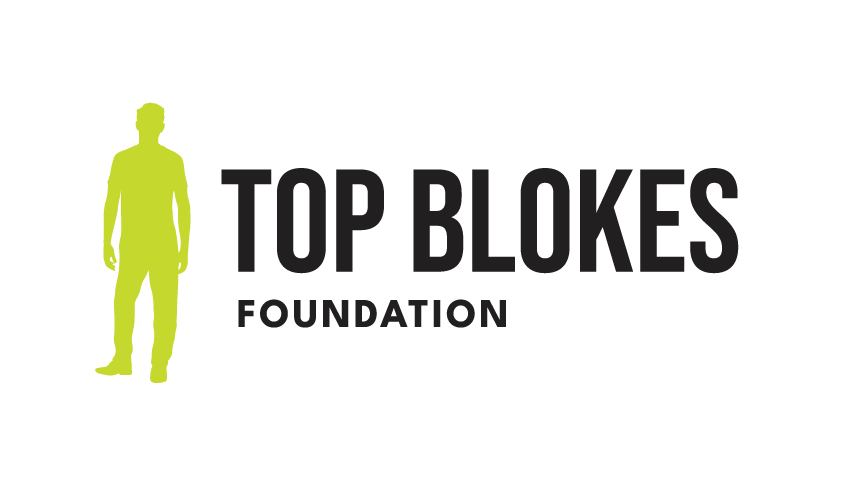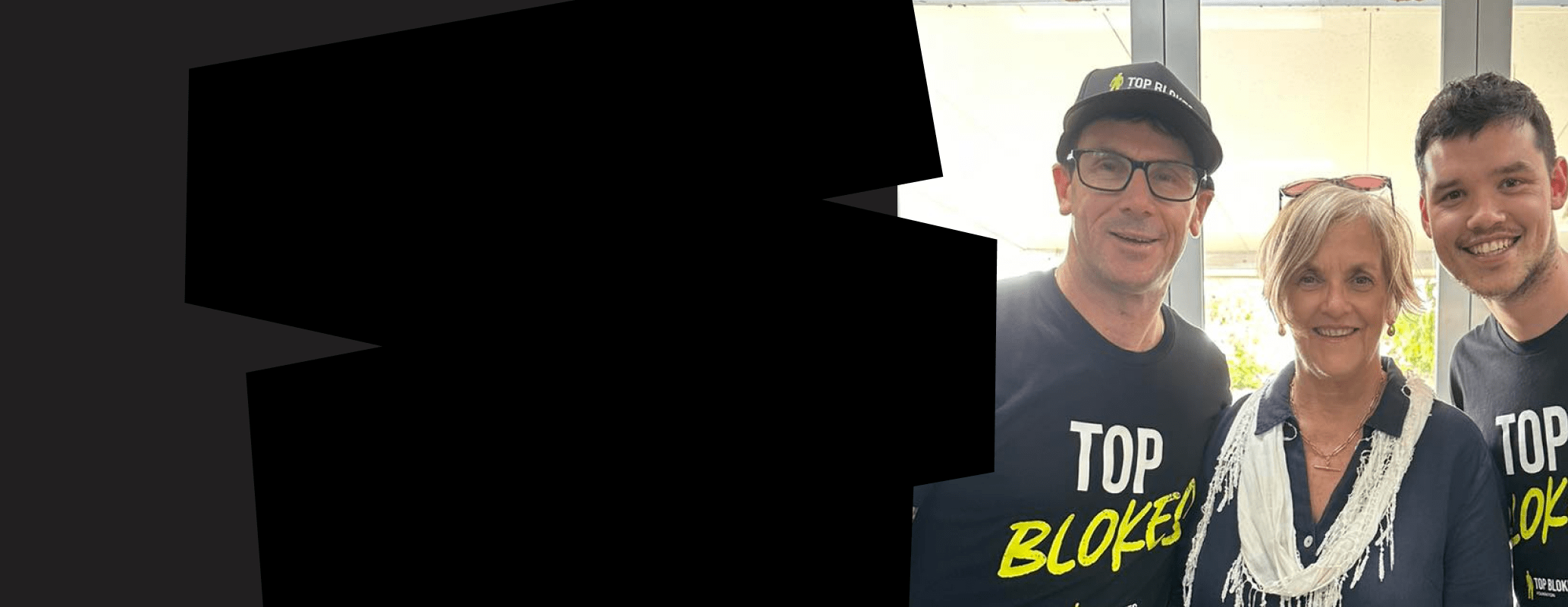At Top Blokes, we believe that strong role models can make all the difference in a young man’s life. Toby is one of those role models —someone who meets young blokes where they’re at, challenges them to think differently and supports them in becoming the best version of themselves. From the rugby league footy fields to youth work, we sit down with him and discover why authenticity is at the heart of everything he does.
What motivated you to become a Youth Worker at Top Blokes?
It wasn’t really a planned decision—it happened by accident. When I left school, I was training with the Manly Sea Eagles, and to uphold our contracts, we had to either work full-time or study. The club offered a Cert IV in Youth Work, and after talking to my family, I decided to give it a go. My mum has always instilled in her kids the need to have two plan A’s! So I had footy and youth work.
At the time, I didn’t know much about youth work, but I had been working as a Student Learning Support Officer (SLSO) and really enjoyed it. Seeing the difference you can make in a young person’s life—helping them progress, learn new skills, or even just build confidence—was really rewarding.
After leaving Manly, I took on a role in residential support work, looking after boys in the care of child safety. Many of them had experienced high levels of trauma. It might have been family violence, drug and alcohol abuse, or the loss of a parent. It was a tough but eye-opening role.
I later moved to Brisbane to play semi-professional footy for the Redcliffe Dolphins, but when COVID hit, I moved back home and started working full-time as an SLSO again. Later that year, I made the move back to Brisbane to pursue rugby league and that was when I saw the job at Top Blokes. The applications had already closed, but I sent through my resume anyway. They called me for an interview, and I got the job!
Mentoring has always come naturally to me — I’m the oldest sibling in my family, so it’s a role I’ve always had. At the time, I was also really focused on my own personal growth and self-development. The values of Top Blokes aligned with the person I wanted to become, and once I started working, I loved it.
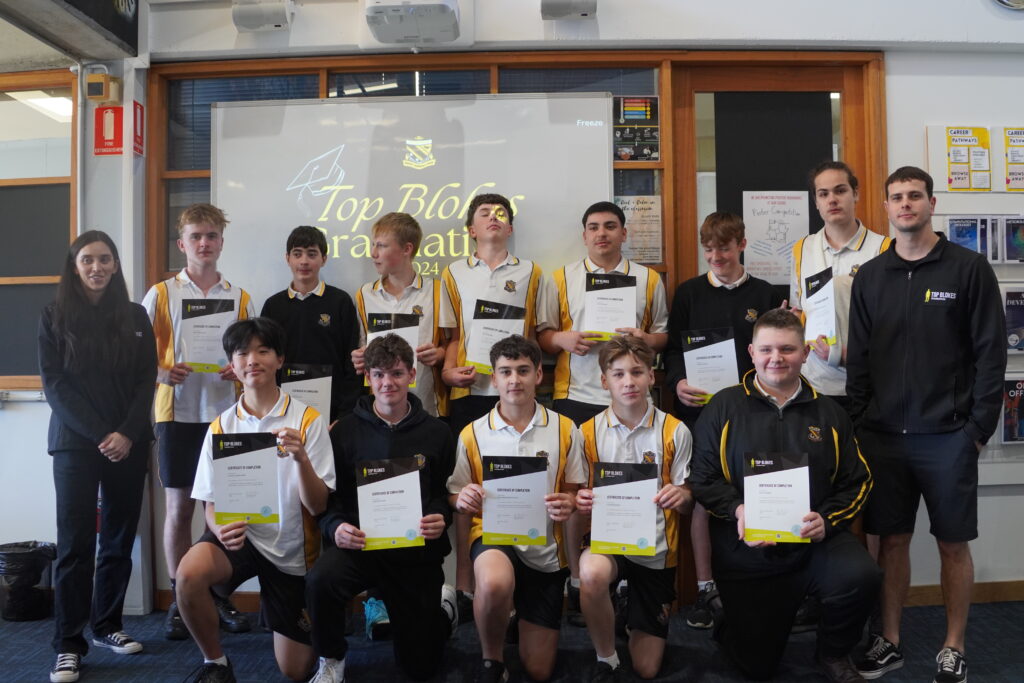
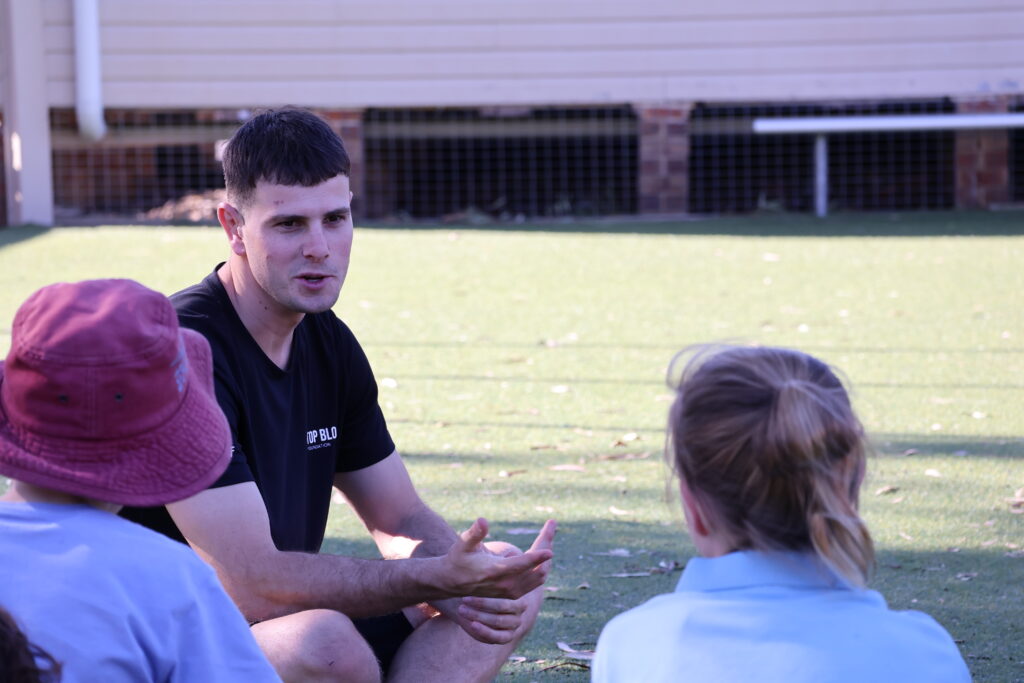
How have your background and personal experiences influenced your approach to youth work?
I try to treat everyone as an individual — without assumptions or judgment. When a young bloke acts out, it’s easy to jump to conclusions, but I approach it with curiosity instead. There’s always a reason behind the behaviour.
The best coaches and mentors I’ve had in my life never told me to do something they wouldn’t do themselves.
That’s something I bring into youth work — we’re not just delivering outcomes, we’re leading by example. If we’re teaching young men about resilience, mental health, and healthy relationships, we have to embody those values ourselves. That’s what builds trust.
What do you find most rewarding about your work with Top Blokes?
I still remember in my early days at Top Blokes telling one of my colleagues how amazing it was that this job didn’t feel like a job. Of course, there are challenges — some days aren’t easy, and working in the school environment can be complex.
But the best moments are when young men really get it — when they are open, engaged, and willing to talk about things that will help them in the long run.
Just the other day, we had run a session on anger management. The following week, we asked if anyone had put the strategies into practice. One 10-year-old shared that while playing Fortnite —something he loves — he kept getting frustrated and angry. But then he realised the thing he enjoyed was actually triggering his anger. Instead of letting it spiral, he put the strategies into place and managed it.
That level of self-awareness at such a young age is incredible.
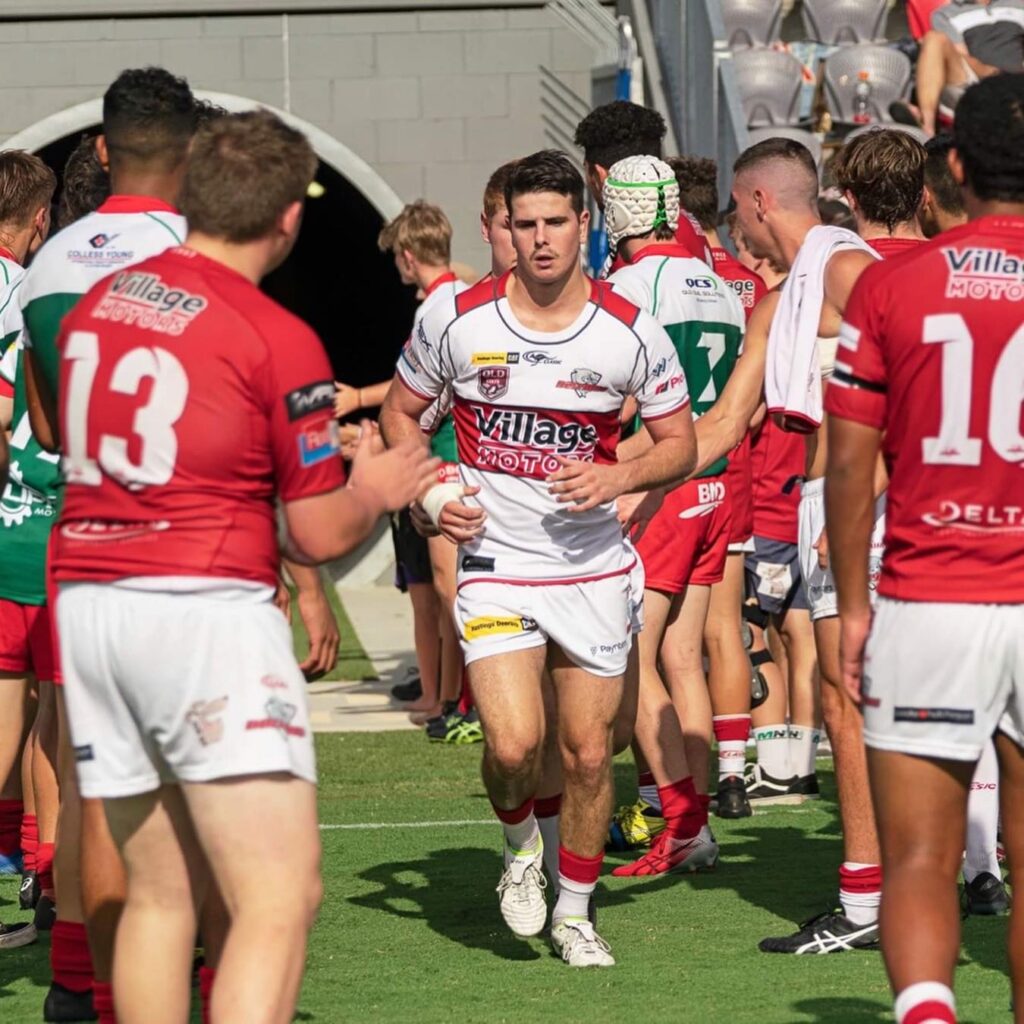
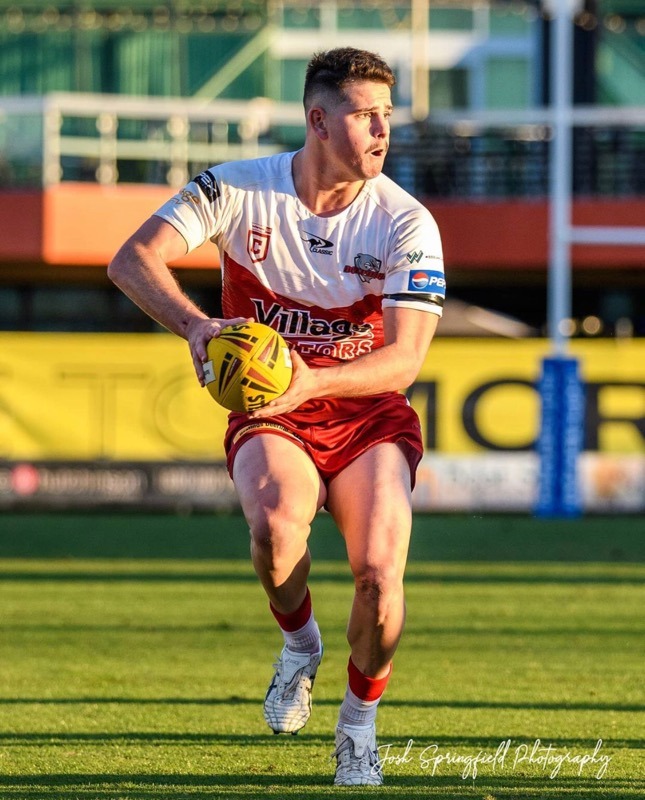
Can you share a memorable success story from your time at Top Blokes?
One young bloke in Queensland stands out. When he first joined our program, he had a history of negative behaviour—suspensions, backchatting, and disrupting class. But once he was in our space, he flourished.
He saw it as a fresh start, a place where he could be the person he wanted to be. He stepped into a leadership role within the group, and when we discussed mental health, he was brave enough to share his personal struggles. This helped his peers understand him better and changed how they saw him.
Over time, he became a support system for others in the group — checking in on them and making sure they were ok. The school even recognised him for his growth. The following year, he left school and started a trade apprenticeship – which had been a goal of his all along.
Seeing him take responsibility for his future, apply what we talked about, and make better decisions was incredible.
What challenges do young men face today?
One of the biggest is masculinity—how young blokes feel they need to “prove” themselves to fit in.
In our sessions, we do an activity called The Mask, where we explore how young men hide parts of themselves to be accepted. There’s a lot of pressure to conform to risk-taking behaviours just to gain approval.
It’s not new, but with social media and online influences, it’s even harder for young men to figure out who they want to be — rather than who others say they should be.
We help them understand that traits like strength or leadership aren’t bad — it’s how you express them. You can be strong by dominating others, or you can be strong by standing up for what’s right. The traits that make a good man are the same, but how you show them is what matters.
Which Top Blokes workshop do you love teaching the most?
The relationship-based topics. They always spark great discussions, even though they start out a bit awkward. Young blokes are curious, but they don’t always have a safe space to ask questions.
We make it a space where they feel comfortable to open up. Sometimes, we even say, “This might be your last chance to ask these questions in a judgment-free space — what do you want to know?”
Our goal is for these conversations to continue beyond the program, so young men support each other in real ways—not just through banter.
How do you build trust with the young men you work with?
Being authentic. Young blokes can tell if you’re being fake.
One simple thing I do is use their names as much as possible — especially in the early stages of the program. I make a big effort right from day one to remember and use their names. This makes them feel seen and heard – I’m invested in knowing who they are.
We also model the right way to respond to tough topics. If someone laughs at another person opening up, we shut it down immediately. This is a safe space. They learn that we listen without judgment, and once they see that, they start to trust us.
What do you love most about your job?
Seeing young blokes apply what we’ve talked about and come back to tell us how it’s helped them.
Some of the connections we build last well beyond the program. Even after it ends, we’ll see them at school, and they’ll stop for a chat. If they were struggling before but have now worked through it, it’s great to see how far they’ve come.
What’s one piece of advice you’d give your high school self?
“Be more authentic.”
I think a lot of teenage boys — myself included — do things for validation rather than because they genuinely want to. I’d tell myself:
- Stop worrying about what other people think of you.
- Work hard and believe in yourself.
- Self-doubt kills more dreams than lack of ability ever will.
When you’re not at Top Blokes, where can we find you?
Coaching and playing rugby league — I’ve been coaching in a more formal way, and now I’m involved with the Sydney Roosters elite pathways program.
Out in the surf — it’s one of my favourite ways to clear my head. It is such a versatile hobby for me. It can be a great social connection tool with my younger brothers and best mates but it is also a great tool to unwind and clear my head when I surf alone. It’s hard to not be present in the moment when you are out in nature.
I’ve been lucky to have great coaches and mentors in my life, and I try to be that person for the young blokes I coach — someone they respect, trust, and can turn to for support in all areas of life.
Toby embodies growth, leadership, and authenticity. Through his work at Top Blokes, he’s helping shape the next generation of young men — one real, meaningful conversation at a time.
Want to bring Top Blokes to your school, workplace or community group? Get involved by booking a chat with us.
